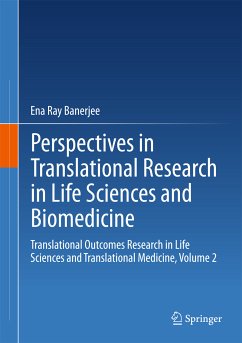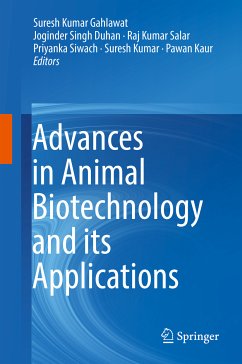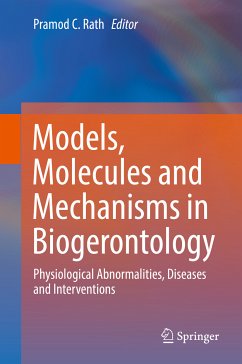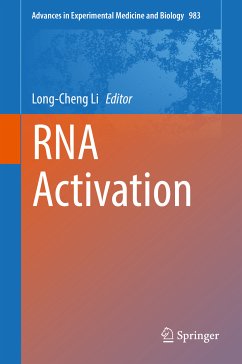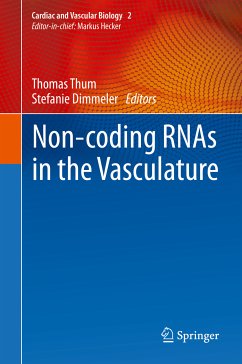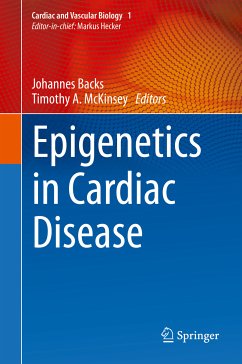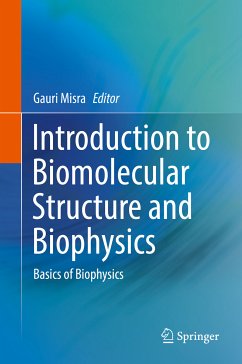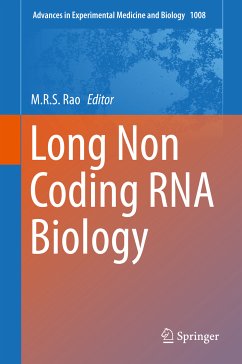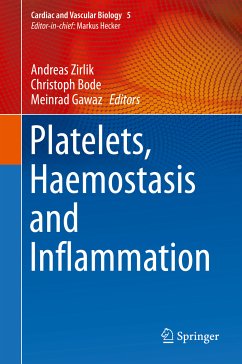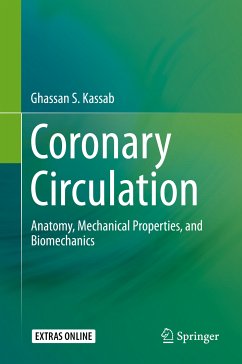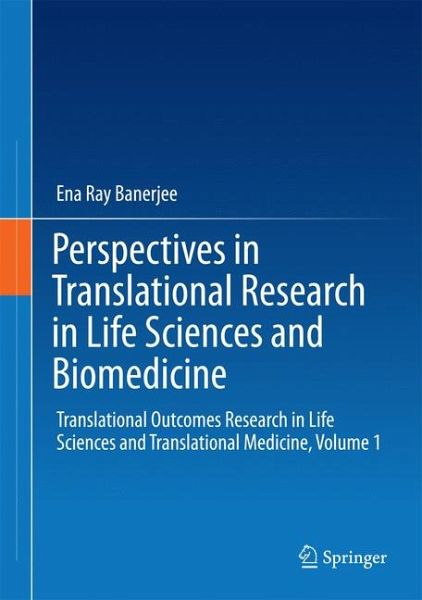
Perspectives in Translational Research in Life Sciences and Biomedicine (eBook, PDF)
Translational Outcomes Research in Life Sciences and Translational Medicine, Volume 1
Versandkostenfrei!
Sofort per Download lieferbar
112,95 €
inkl. MwSt.
Weitere Ausgaben:

PAYBACK Punkte
56 °P sammeln!
The present book addresses the multi-disciplinary nature of Translational Outcomes Research, which is a watershed for nearly all the disciplines of Life and Health Sciences, along with the Materials Sciences including but not limited to Zoology, Botany, Microbiology, Biochemistry, Physiology, Nanotechnology, the Medical Sciences, Bioengineering, Biophysics, Medicinal Chemistry, Structural Biology, Biostatistics and Bioinformatics. This book, for the first time, addresses the basic premises of fundamental research in facilitating drug discovery. One chapter is dedicated to a novel generation of...
The present book addresses the multi-disciplinary nature of Translational Outcomes Research, which is a watershed for nearly all the disciplines of Life and Health Sciences, along with the Materials Sciences including but not limited to Zoology, Botany, Microbiology, Biochemistry, Physiology, Nanotechnology, the Medical Sciences, Bioengineering, Biophysics, Medicinal Chemistry, Structural Biology, Biostatistics and Bioinformatics. This book, for the first time, addresses the basic premises of fundamental research in facilitating drug discovery. One chapter is dedicated to a novel generation of platforms with novel camelid antibodies and their technological extensions, while another focuses on functional food and nutraceuticals.
The book begins with a thorough overview of what translational outcomes research connotes and what the current status of research in the area is, and goes on to elucidate various pertinent preclinical disease models and their uses in basic and application based research in the Life Sciences. How basic approaches to screening and characterization vis-à-vis their role in amelioration of the two cardinal problems of inflammation and degeneration involved in most diseases is elucidated. The book ends with a discussion of the relevance and importance of using Bio Green technology in Translational Outcomes, addressing the need to fill the gap between academia and industry and clinics that can arise through direct or indirect collaboration between the stakeholders and emphasizing the need for an eco-friendly approach so as not to jeopardize the fine balance that holds life on earth in harmony.
Dieser Download kann aus rechtlichen Gründen nur mit Rechnungsadresse in A, B, BG, CY, CZ, D, DK, EW, E, FIN, F, GR, HR, H, IRL, I, LT, L, LR, M, NL, PL, P, R, S, SLO, SK ausgeliefert werden.



